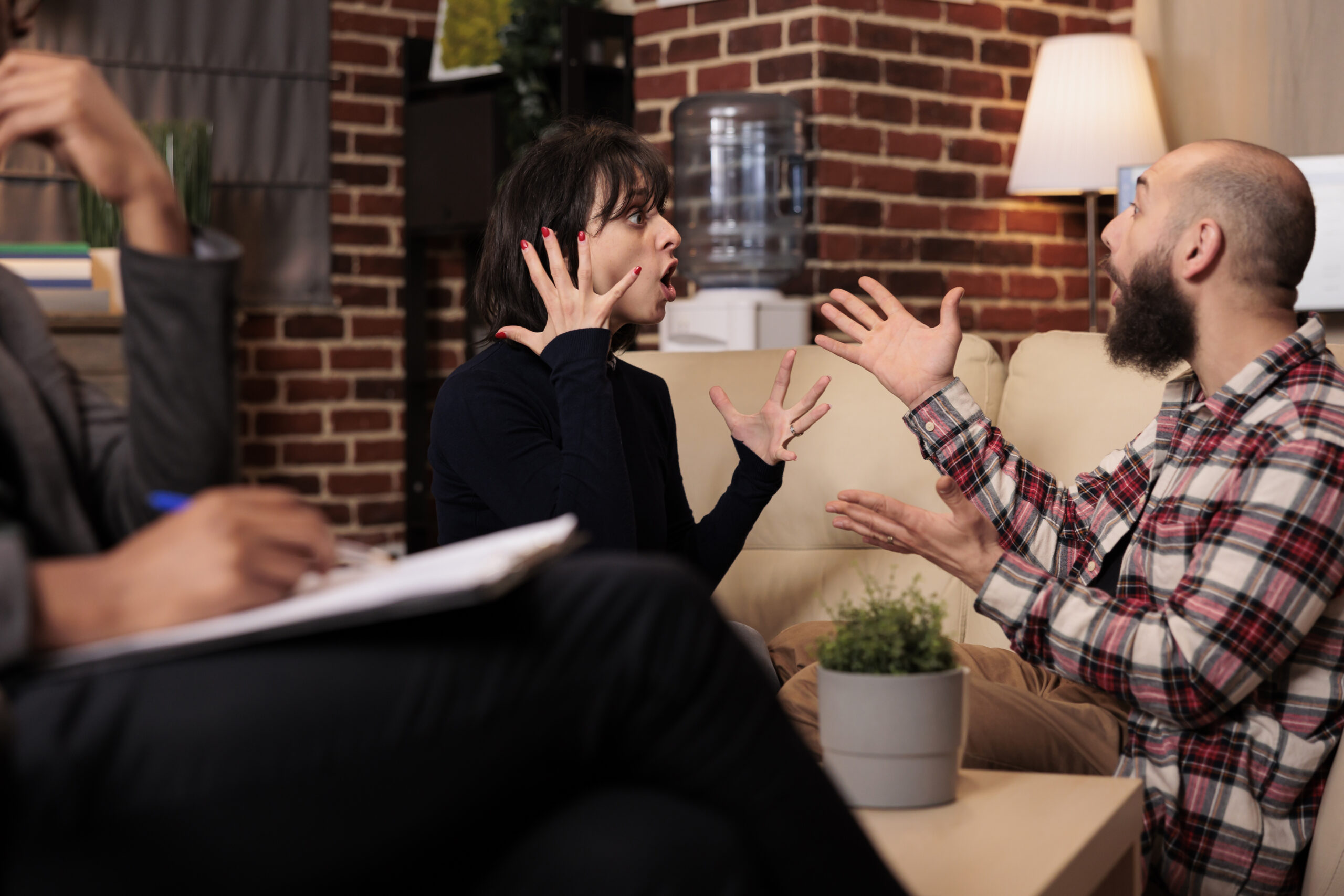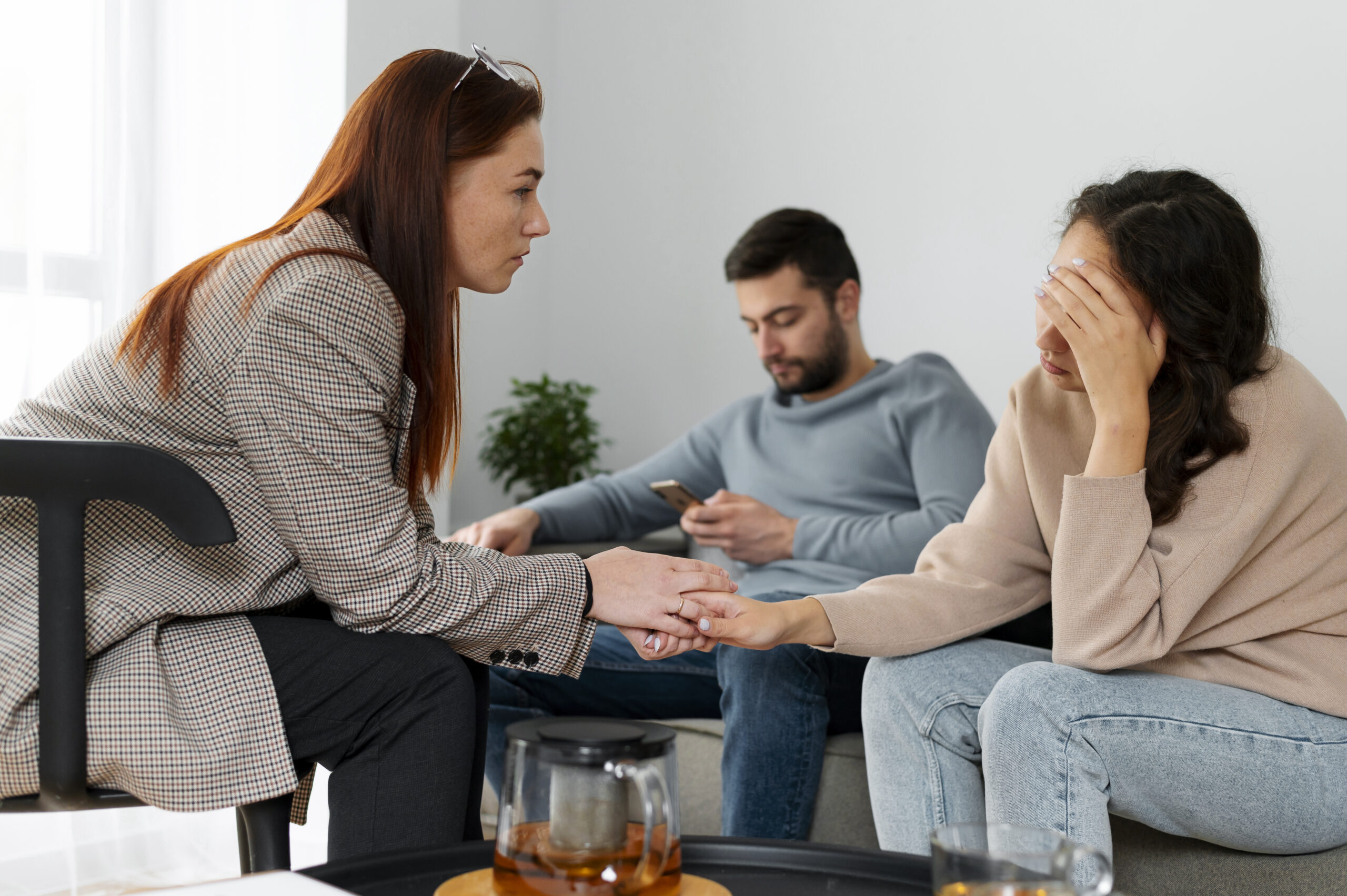What If Partners Fight More During Couples Therapy?
Couples therapy is supposed to bring people closer, right? So what does it mean when you and your partner are arguing more than ever during sessions?
If you’re feeling discouraged or wondering whether therapy is actually making things worse, take a breath: this is more common than you think. In fact, increased conflict early in couples therapy can actually be a sign that you’re finally addressing the real issues—something you may have been avoiding for a long time.
Let’s explore why couples often fight more during therapy, what it means, and how to work through it together.
Why Are We Arguing More in Therapy?
Here are a few reasons therapy might stir up more conflict—especially in the beginning:
- You’re Finally Talking About the Hard Stuff
Before therapy, many couples avoid certain conversations because they’re too uncomfortable, painful, or complicated. Therapy opens the door to these conversations, which means:
- Old wounds come to the surface
- Hidden resentments get voiced
- Long-standing frustrations are no longer swept under the rug
It can feel like the relationship is getting worse, but in reality, it’s becoming more honest.
- You Feel Seen And That Can Be Scary
Couples therapy creates a space where both partners are encouraged to express thoughts and emotions they might usually bottle up. But vulnerability isn’t always easy. When emotions rise, so can defensiveness, blame, or reactivity.
- Therapy Highlights Patterns You Didn’t Notice Before
You may start noticing your partner’s tone, body language, or avoidance more clearly—and they’ll notice yours too. This new awareness can initially trigger irritation or emotional overload as both partners adjust to the spotlight being on their dynamics.
Is Fighting in Therapy a Bad Sign?

Not necessarily. In fact, many therapists view increased conflict during early sessions as a sign of progress. It means you’re:
- Engaging honestly with the process
- Willing to confront real issues
- Breaking long-standing patterns of silence or avoidance
The key isn’t to avoid fighting altogether—it’s to learn how to fight better. That means:
- Fighting fairly (without name-calling or personal attacks)
- Staying emotionally regulated
- Listening instead of interrupting
- Knowing when to pause and cool down
Therapy teaches you how to turn conflict into connection, rather than chaos.
What to Do If You’re Fighting More

If therapy sessions are leaving you emotionally drained or you find yourselves bickering even more outside of sessions, here are a few steps you can take:
- Talk to Your Therapist About It
Don’t hide the fact that you’re struggling—bring it into the room. A skilled therapist won’t be surprised; they’ll help you:
- Understand your conflict triggers
- Slow down reactive arguments
- Practice healthier communication styles in real time
Therapy is a team effort, and part of that effort is being honest about how the process feels.
- Identify Your Individual Triggers
Everyone has emotional triggers. For one partner, it might be feeling dismissed. For another, it could be fear of abandonment or criticism.
In therapy, identifying your own triggers helps you respond more thoughtfully rather than automatically lashing out.
Ask yourself:
- What am I really feeling at this moment?
- Am I reacting to the present, or to something from the past?
- What does my partner need from me right now?
- Use “Time-Outs” When Needed
If emotions start to spiral during therapy or at home, it’s okay to hit pause. Agree on a signal or phrase that means, “Let’s take a break and return to this when we’re calmer.”
Therapists can even help you practice this during sessions so that conflict doesn’t escalate into shutdown or shouting.
- Commit to Practicing New Skills Outside of Sessions
Therapy gives you tools—but it’s up to you to use them. Between sessions, make an effort to:
- Practice active listening
- Express appreciation daily
- Repair quickly after arguments
Small, consistent changes often make a bigger impact than one dramatic breakthrough.
What If Therapy Doesn’t Seem to Help?
Sometimes, despite your best efforts, therapy may not feel productive—especially if:
- One or both partners are unwilling to take accountability
- The same fights happen every week without progress
- Sessions become a battleground instead of a safe space
If this happens, it’s worth discussing openly with your therapist. You might need:
- A shift in approach or therapeutic method (e.g., Emotionally Focused Therapy, Gottman Method)
- Individual therapy alongside couples sessions
- A temporary pause to focus on emotional self-regulation
And in some cases, therapy may reveal that the relationship isn’t healthy or repairable. While that’s painful, it’s still valuable insight—allowing both partners to choose their next steps with clarity.
A Realistic View of Relationship Growth

Couples therapy isn’t about avoiding all conflict—it’s about learning how to handle conflict with care. And sometimes, things feel messier before they get better.
Imagine cleaning out a closet you’ve stuffed things into for years. At first, everything looks worse—more chaotic, more overwhelming. But that’s because you’re finally sorting through the clutter.
It’s the same with relationships. Therapy brings issues into the light so they can be understood, healed, and eventually transformed.
Final Thought: Conflict Is Part of Change
Fighting more during therapy doesn’t mean you’re failing—it means you’re doing the work.
You’re moving from avoidance to engagement. From old habits to new tools. From reacting out of pain to responding with awareness.
If you and your partner are willing to keep showing up—with honesty, openness, and a shared desire to grow—then even the toughest sessions can bring you closer.
Healing is not always calm—but it is always worth it.

Leave a Reply